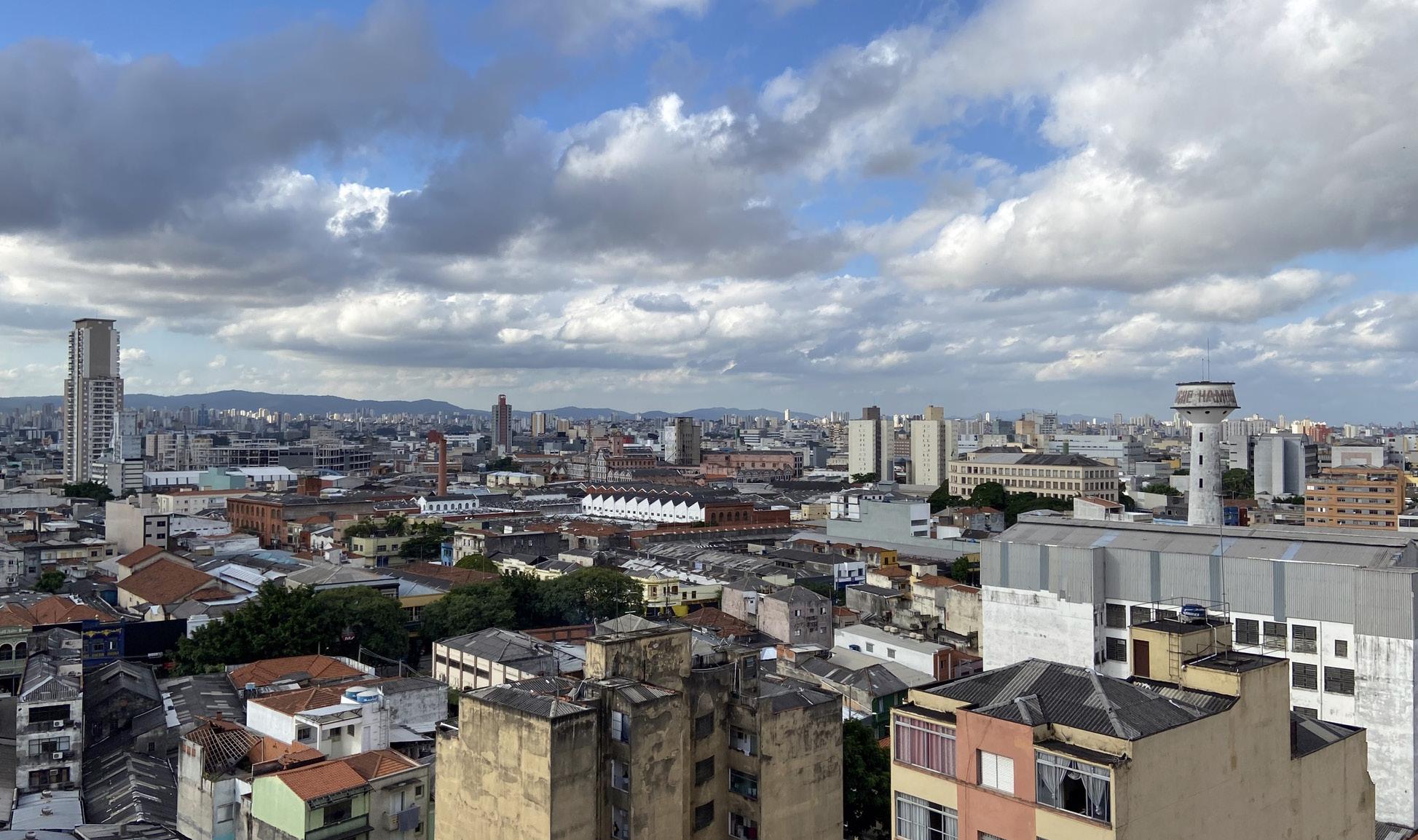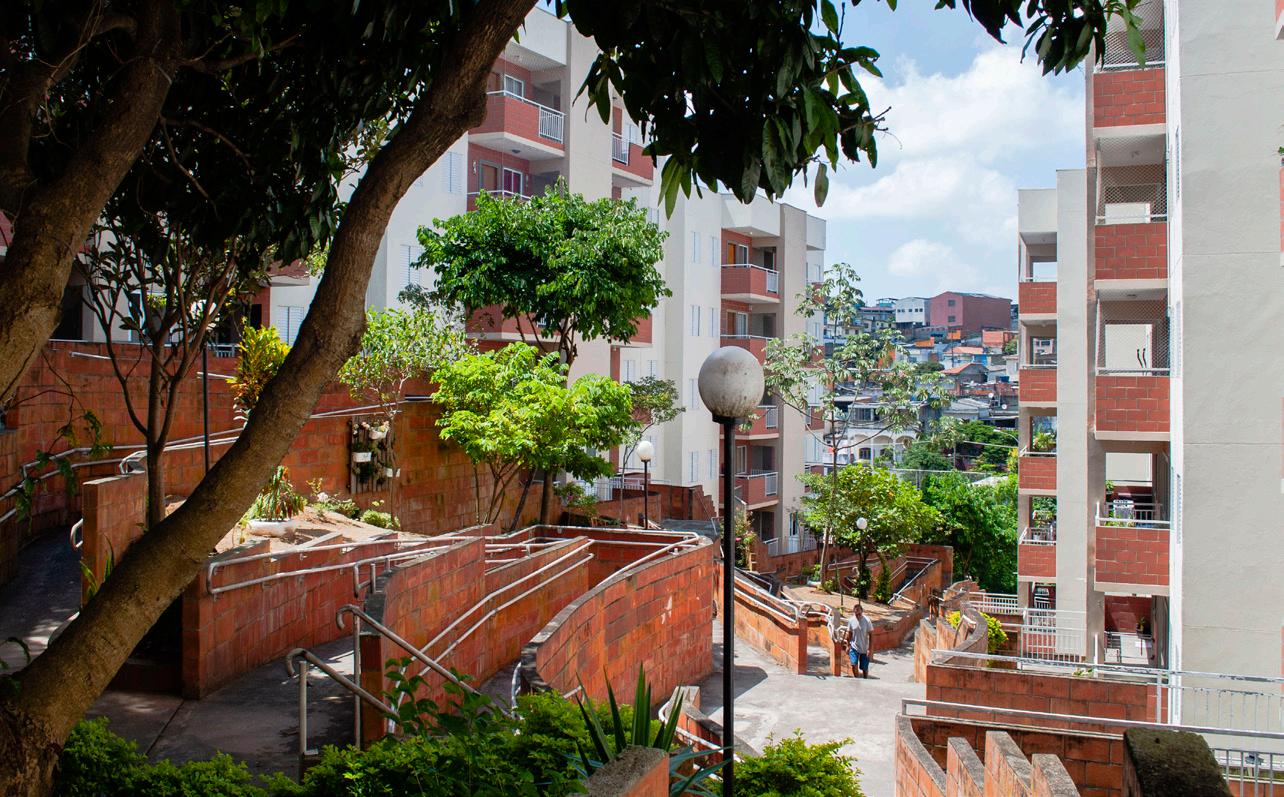
3 minute read
05�1 INTRODUCTION TO THE DELIVERABLE � � � � � � � � � � � � � � � � � � � � � � � � �
from Self-Management Law, Now! Fostering Community-Owned, Permanently Affordable and Sustainable Housing
05 � 1
INTRODUCTION TO THE DELIVERABLE
Housing is a constitutional right in Brazil. Despite this, the housing deficit affects 7.78 million households, with 84% of this burden being shouldered by extremely low-income households (represented by households earning 0-3 minimum wages, or R$2,900 per month).1, 2 While the government subsidizes private developers to produce low-income housing, this tends to result in poorly constructed homes in order to minimize costs and maximize returns for investors. Selfmanagement, on the other hand, is a proven and scalable method. For three decades, UNMP has successfully produced housing through this process of democratic and participatory design, construction, and management. During our time in Brazil, we not only witnessed this ourselves during our fieldwork, but we also collected significant qualitative and quantitative data illuminating the effectiveness and importance of self-management housing. Housing programs like MCMV-E (explained in more detail in Chapter 3 as part of our background research) made huge breakthroughs in housing policy, though were often short lived and insufficiently funded. This pattern, wherein housing programs provide inconsistent funding and support for social movements, is seen over and over again: inconsistent housing policy and the changing tides of political administrations make it extremely challenging for entities like UNMP to complete housing projects and scale up their solutions to meet the magnitude of the housing crisis, despite popular support and the technical expertise to do so.
NEED FOR THE BILL
In response to these challenges, UNMP has crafted the Legal Framework for SelfManagement Law through a democratic and participatory process inclusive of its members. The bill, which is currently being drafted and revised, would create a regulatory framework for self-management at the national level in Brazil.
Specifically, the bill establishes, among other things:
• Key principles of self-management in housing and relevant definitions (Ch. 2, Art. 2-3);
• Income levels that qualify for the program to ensure housing provision is prioritized for low-income populations (Ch. 3, Art. 4);
• Levels of qualification for organizations to participate and provide housing through this program in order to ensure legitimacy and quality of housing providers (Ch. 3, Art. 6);
• Processes for selecting housing providers and projects (Ch. 3, Art. 7-9);
• Funding sources that may be used to execute projects under the program, and the direct and indirect costs associated with the program (Ch. 3, Art. 10-14);
• A collective property ownership structure, and the transferability of collective property (Ch. 4, Art. 15 and 18); and,
• Rights and obligations of residents of a housing project (Ch. 4, Art. 16-17).
The bill would allow a significant scaling up of the program, provide programmatic security and stable funding, and establish clear qualifications and processes for the provision of housing. The bill also protects housing produced via self management from changes in municipal, state, and federal governments. In short, the legislation legitimizes third-sector organizations as social housing producers in Brazil. Lastly, the bill provides an alternative to for-profit housing through a model of collective property and self management that protects housing production from commodification, ensuring long-term affordability and security of tenure. In order to support this law, our role as a capstone team is threefold:
1. Develop a toolbox for legislative advocacy and community engagement via an interactive website and educational materials (see subsection titled “Toolbox for Advocacy”);
2. Provide detailed case study research to normalize autogestão and collective property as a feasible means of housing production and demonstrate its success across Latin America, especially under stable housing policy regimes (see section titled “Case Studies”); and,
3. Assist UNMP with further development of the bill, in particular the collective property section, and identify recommendations to strengthen the connection between the proposed selfmanagement housing program and land acquisition policies (see section titled “Collective Property Research and
Memo”).
Along with all of the team’s deliverables detailed in the following sections, the bill itself is posted on the team’s website, Lei da Autogestão Já. Viewers are able to comment on the bill or send a message with feedback directly to UNMP.









